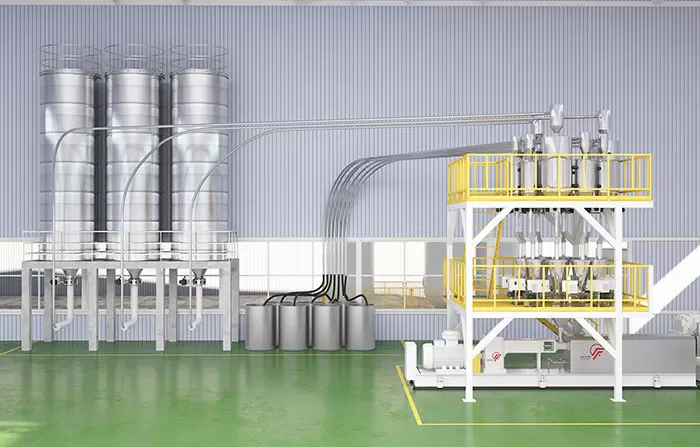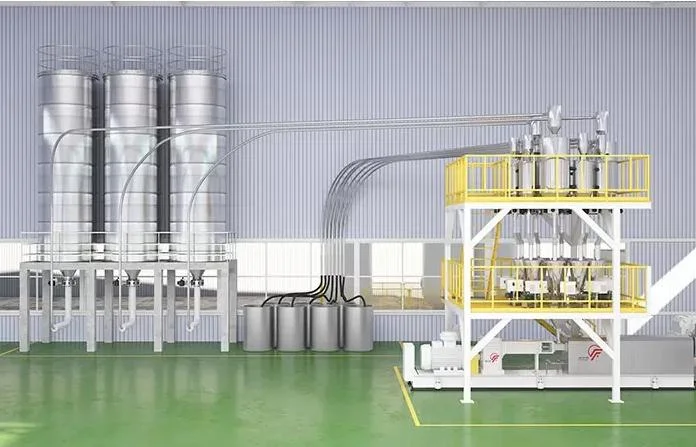In the ever-evolving landscape of industrial manufacturing, the push towards more sustainable and efficient production methods has led to significant advancements in various technologies. One such innovation is the CO2 XPS production line. Notably, companies like China Feininger, a pioneer in the field, have set benchmarks in efficiency and sustainability with their advanced CO2 foaming technology in the production of XPS foam boards.

The Role of CO2 in XPS Production:
Extruded Polystyrene (XPS) foam board is widely recognized for its superior insulation properties, making it an essential material in construction, packaging, and insulation industries. Traditionally, hydrofluorocarbons (HFCs) were used as blowing agents in the production of XPS foam. However, the environmental impact of HFCs has led to the search for greener alternatives. Carbon dioxide (CO2) has emerged as a viable substitute, offering a reduced carbon footprint without compromising the quality of the foam board.
China Feininger: At the Forefront of Innovation:
China Feininger, the first professional manufacturer of XPS Extrusion Line and XPS Foam Board in China, has taken a leading role in this transformation. As the only enterprise specializing in both XPS foam production and the development, manufacturing, and sale of XPS equipment, Feininger's commitment to innovation is evident. Their most advanced CO2 foaming technology not only adheres to environmental regulations but also enhances the efficiency of the production process.
Understanding CO2 Foaming Technology:
CO2 foaming technology utilizes carbon dioxide as a blowing agent in the extrusion process of XPS foam production. This method is highly favored for its environmental benefits, as CO2 is a non-flammable, non-ozone depleting, and low global warming potential substance. The technology employed by Feininger allows for precise control over the nucleation and cell structure of the foam, leading to products with excellent thermal resistance and mechanical properties.
Benefits of CO2 XPS Production Lines:
Environmental Sustainability: By incorporating CO2, Feininger's production lines significantly reduce the environmental impact associated with traditional foam production processes.
Enhanced Efficiency: CO2 foaming technology allows for faster cooling and quicker stabilization of the foam, which increases production speed and reduces energy consumption.
Cost-Effectiveness: The use of CO2, a relatively inexpensive and widely available blowing agent, lowers the overall production costs.
Superior Product Quality: The unique properties of CO2 ensure that the foam boards produced have a uniform cell structure and excellent insulating characteristics.
Challenges and Solutions:
While the transition to CO2 foaming technology offers numerous benefits, it also comes with challenges. Managing the dynamics of CO2 under high pressures and maintaining consistent foam quality are critical issues. Feininger has addressed these challenges through continuous R&D, resulting in robust machinery that can reliably produce high-quality XPS foam boards.
Feininger's Impact on the Industry:
Feininger's pioneering use of CO2 XPS production lines has set new industry standards for sustainability and efficiency. Their technology not only serves as a model for other manufacturers but also encourages the broader adoption of green technologies in the insulation manufacturing sector. By demonstrating that environmental responsibility can go hand-in-hand with economic and operational efficiency, Feininger has positioned itself as a leader in the global market.
Conclusion:
The efficiency of CO2 XPS production lines, as exemplified by China Feininger, marks a significant step forward in the manufacturing of insulation materials. With its advanced CO2 foaming technology, Feininger has not only improved the environmental footprint of its production processes but also enhanced the overall quality and cost-effectiveness of the end products. As industries continue to seek sustainable solutions, Feininger’s innovations offer a promising path towards a greener and more efficient future.
Future Outlook:
Looking ahead, the potential for further advancements in CO2 foaming technology remains vast. Continued investment in R&D and a focus on sustainable practices will likely yield even more efficient and environmentally friendly production methods. As a leader in the field, China Feininger will undoubtedly continue to play a crucial role in shaping the future of XPS foam production.





